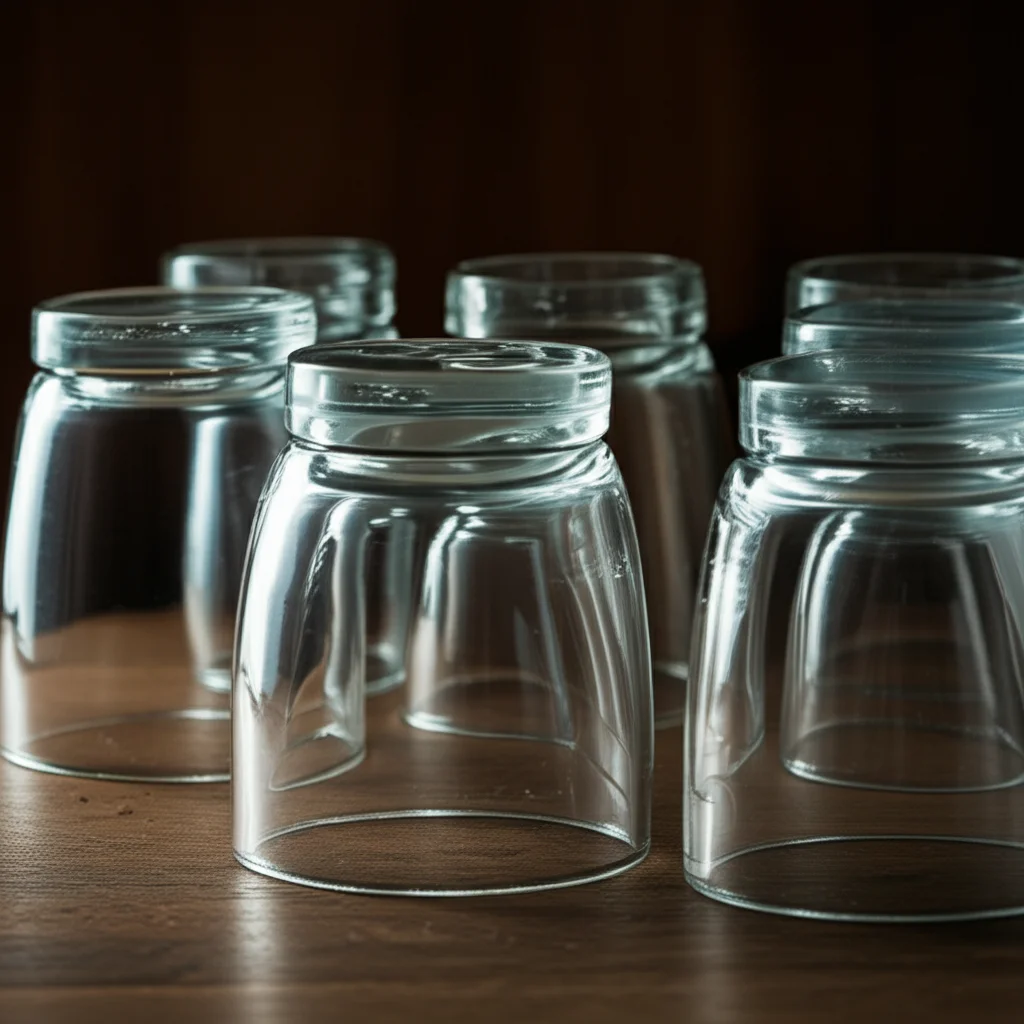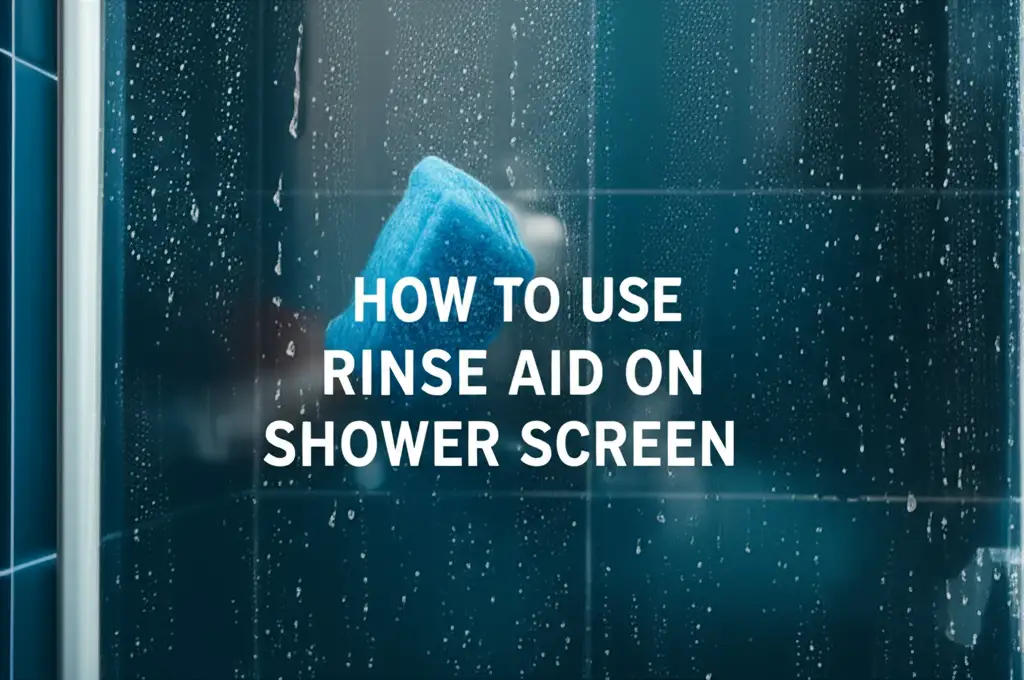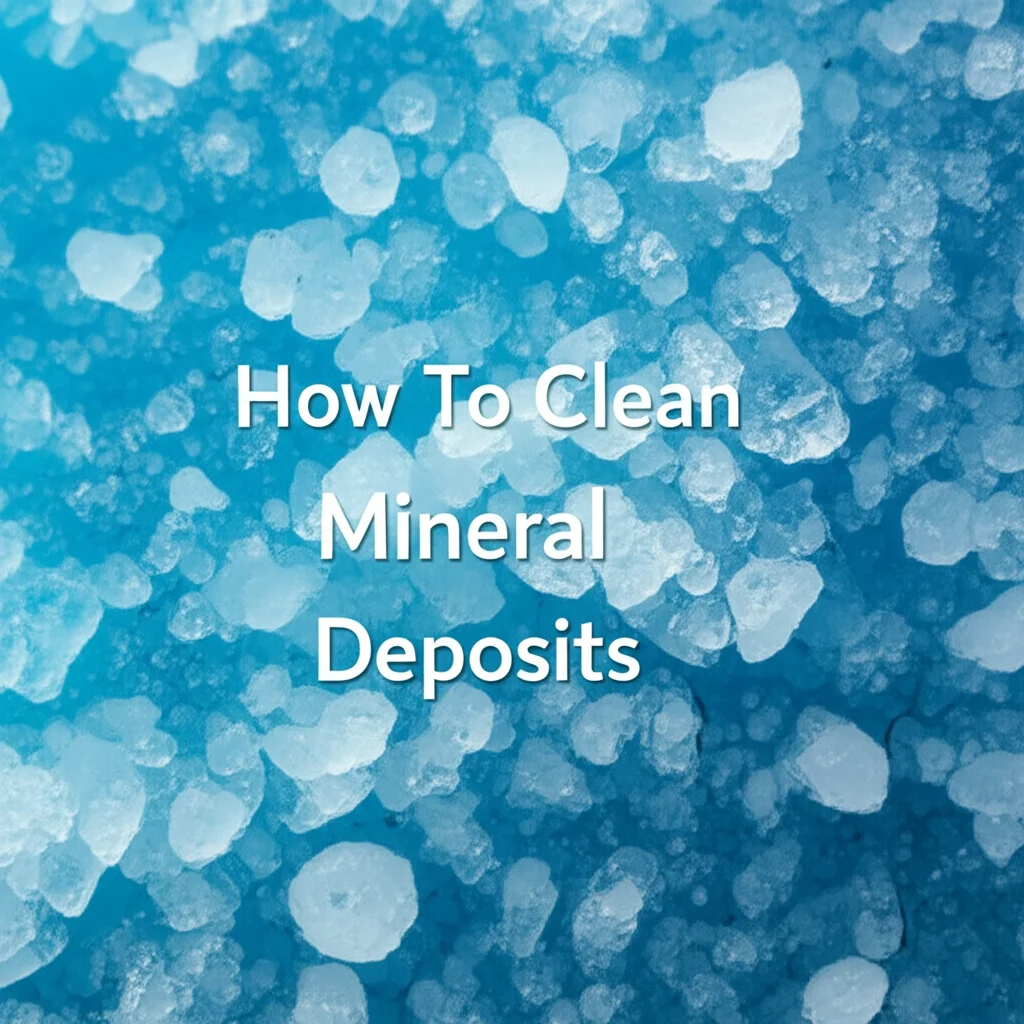· Davia Murnell · Home Cleaning · 18 min read
How To Clean Cloudy Glasses From The Dishwasher

Restore Sparkle: How to Clean Cloudy Glasses from the Dishwasher
Few things are as frustrating as opening your dishwasher to find clean dishes, only to discover your glasses look cloudy and dull. This common issue affects many households. Those pristine drinking glasses, once sparkling, now seem to have a permanent hazy film. You might wonder if your glasses are ruined forever or if your dishwasher is failing. I know I have. This article will show you how to clean cloudy glasses from the dishwasher. We will explore the root causes of cloudiness, provide simple, effective cleaning methods, and offer practical tips to prevent this problem from happening again. Let’s bring the shine back to your glassware.
Takeaway
- Identify the cause: Determine if cloudiness is from hard water mineral buildup or permanent glass etching.
- Use natural solutions: White vinegar and baking soda are effective for removing mineral deposits.
- Prevent future cloudiness: Adjust dishwasher settings, use rinse aid, and clean your dishwasher regularly.
- Load correctly: Avoid overcrowding to ensure proper water circulation.
- Consider water quality: Test your water hardness if cloudiness persists.
Cloudy glasses from the dishwasher often result from hard water mineral deposits or glass etching. You can typically restore clarity by soaking glasses in white vinegar or gently scrubbing with a baking soda paste. To prevent recurrence, ensure proper rinse aid usage, optimal dishwasher settings, and regular appliance maintenance.
Understanding Why Glasses Get Cloudy in the Dishwasher
When you pull glasses from the dishwasher, a cloudy appearance can be a real letdown. This common problem stems from two primary culprits. Recognizing the cause is the first step in effective cleaning. Knowing the difference helps you choose the right solution.
The first reason glasses get cloudy is hard water. Hard water contains high levels of dissolved minerals like calcium and magnesium. These minerals can adhere to glass surfaces during the wash and dry cycles. Over time, these mineral deposits build up, creating a hazy film. This film is often reversible with the right cleaning agents.
The second cause is glass etching. This is permanent damage to the glass surface itself. Etching happens when hot water, strong detergents, and soft water combine. The alkaline chemicals in dish soap can corrode the glass. This is especially true with soft water, which lacks minerals that normally buffer the detergents. Once etched, the glass surface is pitted and scratched. This damage cannot be fully reversed.
Sometimes, poor dishwasher performance also contributes. This includes insufficient rinse aid, improper water temperature, or a dirty dishwasher filter. These factors can leave detergent residue or food particles on your glasses. Understanding these causes helps you tackle the problem effectively. Learning how to identify whether you have hard water or etching saves you time and effort. I have found that a simple test often reveals the answer. If you need to clean cloudy glass from various sources, the principles for mineral removal remain similar. For general tips on how to effectively get cloudy glasses clean again, identifying the type of cloudiness is key. If your water is particularly hard, you might also be dealing with how to clean calcium buildup in dishwasher components, which contributes to the overall problem.
The Essential Tools and Supplies for Cleaning Cloudy Glasses
Before you begin restoring your glassware, gathering the right tools and supplies makes the process smoother. You probably have most of these items in your pantry. Using the correct materials ensures a safe and effective cleaning. I always make sure I have everything ready before I start.
White vinegar is your best friend for removing mineral deposits. Its acidic nature dissolves the calcium and magnesium that cause hard water stains. You will need a significant amount for soaking, typically enough to submerge your glasses. Distilled white vinegar works best because it has a consistent acidity level.
Baking soda is another versatile cleaner. It acts as a mild abrasive to gently scrub away stubborn film. When combined with water, it forms a paste that can target specific areas. I often use it for tough spots that need a little extra power.
Lemons or lemon juice provide a natural, pleasant-smelling alternative. The citric acid in lemons also helps break down mineral deposits. They are excellent for lighter stains or a quick refresh. Microfiber cloths are essential for drying and polishing. They prevent water spots and leave a streak-free shine. A soft brush or sponge is helpful for gentle scrubbing without scratching the glass.
For safety, you might want rubber gloves, especially if you have sensitive skin. Finally, a large basin or sink for soaking is necessary. Having these items on hand prepares you for success. Knowing their specific uses helps you apply the right solution to the problem. You might find some good tips on how to clean your dishwasher with vinegar and baking soda to address internal hard water issues that contribute to cloudy glasses.
Restoring Clarity: Methods for Mineral Buildup (Hard Water Stains)
Hard water stains, or mineral buildup, are the most common cause of cloudy glasses. The good news is that these stains are usually removable. You can restore your glasses to their original sparkle with a few simple methods. These techniques rely on common household items you likely already possess. I have personally used these methods many times with great success.
Vinegar Soak Method
White vinegar is incredibly effective against hard water deposits. Its acidity helps dissolve the mineral film. This method is straightforward and requires minimal effort. It is my go-to solution for multiple cloudy glasses.
First, fill a basin or your kitchen sink with equal parts hot water and white vinegar. The water should be hot enough to comfortably touch, but not scalding. Carefully place your cloudy glasses into the solution, ensuring they are fully submerged. Let them soak for at least 30 minutes, or up to several hours for very stubborn stains. Some people even let them soak overnight. After soaking, remove the glasses and gently scrub them with a soft cloth or non-abrasive sponge. You will see the mineral film begin to loosen. Rinse the glasses thoroughly with clean, warm water and dry them with a microfiber cloth. This prevents new water spots from forming. This method works wonders on mineral deposits, making your glasses clear again. For comprehensive guidance on how to get cloudy glasses clean using various methods, this soak is always a primary recommendation.
Lemon Juice Scrub
Lemon juice offers another natural acidic solution, especially for lighter cloudiness. It provides a fresh scent too. This method is ideal for individual glasses or quick touch-ups. It is a simple and effective alternative to vinegar.
Cut a lemon in half. Take one half and sprinkle some salt onto the cut side. The salt acts as a gentle abrasive. Use the lemon half to scrub the cloudy areas of your glass. Apply light pressure and rub in a circular motion. The acidity of the lemon juice will work on the mineral deposits. Once you have scrubbed all affected areas, rinse the glass thoroughly with warm water. Dry it immediately with a clean, lint-free cloth. This method is great for maintaining clarity between deep cleans.
Baking Soda Paste
For very stubborn mineral spots or hard-to-reach areas, a baking soda paste can be highly effective. Baking soda is a mild abrasive that can gently lift deposits. This approach gives you more direct control over the cleaning process. I use this when the vinegar soak isn’t quite enough.
Mix a few tablespoons of baking soda with just enough water to form a thick paste. The paste should be spreadable but not runny. Apply the paste directly onto the cloudy areas of your glasses. Use your fingers or a soft cloth to gently rub the paste onto the film. Let the paste sit on the glass for about 10-15 minutes. This allows the baking soda to work on the minerals. After the wait time, gently scrub the area with a soft sponge or cloth. Rinse the glass completely under warm water. Ensure all baking soda residue is gone. Finish by drying with a clean, dry cloth for a streak-free shine. You might also find this method useful if you are trying to clean cloudy glass from other sources around your home.
Addressing Glass Etching: When Damage is Permanent (and How to Mitigate)
Unlike mineral buildup, glass etching is permanent damage. It occurs when chemicals in dish detergent, often combined with soft water and high heat, corrode the glass surface. This creates microscopic pits and scratches that scatter light, causing a cloudy appearance. I understand this can be disappointing, but knowing the truth is important. Unfortunately, there is no way to truly reverse etching. The damage is to the glass structure itself.
When glasses are etched, their surface changes irreversibly. You can distinguish etching from mineral buildup by feel and appearance. Etched glasses will still feel smooth to the touch, or slightly rough, but the cloudiness will not wipe away. Mineral deposits, however, often feel gritty and can be scraped off with a fingernail. If a vinegar soak doesn’t remove the cloudiness, your glasses are likely etched.
While you cannot repair etched glasses, you can sometimes improve their appearance slightly by ensuring there’s no additional mineral film. Sometimes, what looks like etching is a combination of etching and light mineral deposits. A thorough cleaning with vinegar might clear up the latter, making the etching less noticeable. However, do not expect a complete restoration. The primary focus for etched glasses shifts to prevention for your other glassware. This means adjusting your dishwasher habits to protect new items.
Preventing etching involves being mindful of detergent use and water softness. If you have naturally soft water, use less detergent than recommended. Consider using a detergent formulated for soft water areas. Also, avoid using excessively hot water cycles. High heat can accelerate the etching process. Air drying instead of heat drying can also help. While etched glasses serve as a reminder, they also provide a clear lesson on how to protect your future glassware. For items like delicate wine glasses, being extra careful with washing methods is always recommended to prevent etching.
Preventing Cloudy Glasses in the Future: Proactive Measures
Once you have restored your glasses, or learned to live with etching, the next step is prevention. Taking proactive steps can significantly reduce the chances of your glasses becoming cloudy again. These measures involve understanding your dishwasher and your water. I found that a few small changes in my routine made a big difference.
Optimize Dishwasher Settings
Your dishwasher’s settings play a crucial role in glassware care. Many dishwashers offer a “delicate” or “glassware” cycle. These cycles typically use lower water temperatures and gentler wash actions. Using less heat reduces the risk of both etching and baking minerals onto your glasses. If your dishwasher has a heated dry option, consider turning it off. Instead, allow your glasses to air dry. Residual heat can bake minerals onto the glass, leading to cloudiness. Opening the dishwasher door immediately after the cycle can help with air drying.
Proper Detergent and Rinse Aid Usage
Using the correct amount and type of detergent is vital. Too much detergent, especially with soft water, can lead to etching. Too little might result in food residue or mineral deposits. Read your detergent’s instructions carefully and adjust for your water hardness. High-quality detergents often contain ingredients that help prevent mineral buildup.
Rinse aid is a game-changer for clear glasses. Rinse aid helps water sheet off dishes, preventing droplets from drying and leaving spots. It also speeds up the drying process. Check your dishwasher’s rinse aid dispenser regularly. Refill it when needed. If you have very hard water, consider using more rinse aid than the standard setting. This will dramatically improve the clarity of your glasses. Knowing where to put finish dishwasher pods and other detergents correctly is also part of optimal use.
Load the Dishwasher Correctly
Overcrowding your dishwasher can hinder proper water circulation and rinsing. Glasses need space for water and detergent to reach all surfaces and rinse away completely. Place glasses on the top rack only. Ensure they are stable and not touching other dishes. This prevents scratching and allows for thorough cleaning. Angle cups and bowls downwards so water can drain properly. Proper loading ensures every item gets adequate cleaning and rinsing.
Water Softener Solutions
If you live in an area with extremely hard water, consider a whole-house water softener. This system removes minerals from your water supply before it enters your home. A water softener not only protects your glasses but also extends the life of your dishwasher and other appliances. It can also improve the effectiveness of soaps and detergents throughout your home. This is a larger investment but can solve persistent hard water issues.
Regular Dishwasher Maintenance
A clean dishwasher is essential for clean glasses. Food particles, grease, and mineral buildup inside the dishwasher itself can transfer to your dishes. Regularly clean your dishwasher filter, spray arms, and interior. You can run an empty cycle with white vinegar or a dishwasher cleaner. This prevents residue from accumulating on your glasses. A well-maintained dishwasher performs better and keeps your glassware sparkling. Regular maintenance prevents many common issues, including cloudy glasses. Performing how to clean the inside of a dishwasher is a critical step in keeping your glasses clear. You can also learn how to clean a smelly dishwasher for an overall cleaner appliance.
Advanced Tips and Troubleshooting for Stubborn Cloudiness
Sometimes, even with the best efforts, cloudy glasses remain stubborn. This calls for more advanced troubleshooting. Don’t give up hope just yet. There are a few extra steps you can take to tackle persistent issues. I find that persistence often pays off with these types of cleaning challenges.
One powerful ally against tough mineral deposits is citric acid. Citric acid is a natural descaling agent, often found in powdered form. You can buy it at grocery stores or online. Dissolve a tablespoon or two of citric acid powder in a gallon of hot water. Soak your cloudy glasses in this solution for a few hours. The citric acid will aggressively break down mineral buildup. After soaking, scrub gently and rinse thoroughly. This method is particularly effective for very hard water stains that vinegar might struggle with. This is also useful if you want to know how to clean dishwasher with citric acid for internal cleaning.
Consider getting your water professionally tested. A water test will give you a precise understanding of your water hardness level. This information helps you make informed decisions about detergent amounts and whether a water softener is truly necessary. Knowing your water composition is key to long-term prevention. Many local water utilities offer free testing, or you can purchase a home testing kit.
Review your dishwasher’s user manual. Many manuals contain specific recommendations for water hardness settings or unique cleaning cycles. They might also provide troubleshooting tips tailored to your specific model. Sometimes, a simple adjustment recommended by the manufacturer can resolve the issue. I always keep my appliance manuals handy for just this reason.
Finally, know when to let go. If glasses are severely etched, they may never regain their original clarity. Continual efforts might not be worth the time and resources. It can be more practical to replace deeply etched glassware. Focus your prevention efforts on your new glasses. This approach ensures your effort is well-spent on maintainable items. If you’ve tried everything and the cloudiness persists, it’s okay to accept that some damage is irreversible.
Dishwasher Maintenance: Keeping Your Appliance Sparkly for Clear Glasses
Achieving clear, sparkling glasses isn’t just about how you clean the glass itself. It also significantly depends on the cleanliness and efficiency of your dishwasher. A dirty dishwasher can be the root cause of cloudy glassware. Food particles, grease, and mineral buildup inside the appliance can redeposit onto your dishes. Maintaining your dishwasher regularly ensures it performs at its best. I have learned that a clean machine means cleaner dishes.
Start with the dishwasher filter. Many modern dishwashers have a removable filter, usually located at the bottom of the tub. This filter traps food debris and prevents it from recirculating onto your dishes. Remove the filter and rinse it under running water to clear away any trapped particles. For a deeper clean, you can use a small brush and dish soap to scrub away greasy residue. I clean my filter at least once a month, sometimes more if I run the dishwasher frequently. Regularly cleaning the filter in your dishwasher is a simple but vital step.
Next, inspect the spray arms. These rotating arms have small holes that spray water onto your dishes. Over time, these holes can become clogged with food bits or mineral deposits. Use a toothpick or a small wire to clear any blockages in the spray arm holes. Ensure the arms spin freely. Clean the arms with a damp cloth if they have visible residue. Clear spray arms ensure proper water distribution during the wash cycle.
The interior of your dishwasher also needs attention. Mineral buildup can occur on the walls, racks, and heating element. To tackle this, run an empty cycle with a cleaning agent. You can use white vinegar for this. Place a cup of white vinegar in an upright, dishwasher-safe bowl on the top rack. Run a hot water cycle without any detergent or dishes. The vinegar helps to dissolve grease and mineral deposits. Alternatively, you can use baking soda. Sprinkle a cup of baking soda on the bottom of the empty dishwasher. Run a short, hot cycle. These methods are excellent for general cleaning and odor removal. For a truly thorough cleaning, you might want to learn how to deep clean a dishwasher. If your dishwasher is particularly dirty or smelly, following tips on how to clean your dishwasher with baking soda or how to clean dishwasher with vinegar can make a significant difference. A clean dishwasher ultimately leads to cleaner, clearer glasses.
FAQ Section
Is cloudy glass from hard water or etching?
Cloudy glass can be from either hard water or etching. Hard water causes mineral deposits, which usually feel gritty and can be removed with acidic cleaners like vinegar. Etching is permanent damage to the glass surface, often caused by soft water, high heat, and excessive detergent. Etched glass typically feels smooth and the cloudiness cannot be wiped away. A simple vinegar soak can help you determine the cause.
Can I use dishwasher detergent to clean cloudy glasses?
No, you should not use regular dishwasher detergent to clean cloudy glasses. Dishwasher detergents are often highly alkaline and can contribute to glass etching, especially if your water is soft. They are designed for machine use, not hand cleaning glassware. Stick to natural, milder acidic solutions like white vinegar or lemon juice for hand-cleaning cloudy glasses caused by mineral deposits.
How often should I clean my dishwasher to prevent cloudy glasses?
You should clean your dishwasher regularly to prevent cloudy glasses. Aim to clean the filter once a month, or more often if you run the dishwasher daily or have heavily soiled dishes. Run an empty cleaning cycle with vinegar or a dishwasher cleaner every 1-3 months. Regular maintenance prevents mineral buildup and residue transfer, ensuring your machine washes effectively.
What’s the best rinse aid for hard water?
For hard water, the best rinse aid is one specifically designed for high-mineral content. Look for rinse aids that contain drying agents that help water sheet off surfaces more effectively. You might need to adjust your dishwasher’s rinse aid dispenser setting to a higher level. Using more rinse aid can significantly reduce water spots and cloudiness caused by hard water.
Can cloudy glass be fully restored?
If the cloudiness is due to hard water mineral deposits, cloudy glass can often be fully restored to its original clarity. Solutions like vinegar or citric acid are very effective at dissolving these deposits. However, if the glass is etched, the damage is permanent. While cleaning might make the etching slightly less noticeable by removing any surface film, the structural damage to the glass cannot be reversed.
Does air drying prevent cloudiness?
Air drying can help prevent cloudiness, especially if your water is hard. When dishes air dry, water evaporates naturally, reducing the chances of minerals baking onto the glass surface. Heated drying cycles can sometimes exacerbate mineral buildup by speeding up the evaporation of hard water. Opening the dishwasher door after a wash cycle promotes air drying and helps prevent spots.
Conclusion
Dealing with cloudy glasses from the dishwasher can be a disheartening experience, but it is a problem with clear solutions. I hope this guide has given you confidence. We have explored the main culprits behind the haze, whether it is stubborn hard water mineral deposits or the irreversible effects of glass etching. Knowing the difference empowers you to choose the right course of action.
You now have effective methods to clean cloudy glasses from the dishwasher. Simple household staples like white vinegar, lemon juice, and baking soda are powerful allies against mineral buildup. Remember that consistent preventive measures are key to long-term sparkling glassware. Optimizing your dishwasher settings, using rinse aid correctly, loading your dishes properly, and performing regular dishwasher maintenance are essential steps. Even considering a water softener can make a significant impact if you live in a hard water area. By implementing these tips, you can reclaim the sparkle and clarity of your favorite drinking glasses. Don’t let cloudy glasses dim your kitchen’s shine any longer; take action today and enjoy perfectly clear glassware with every wash!
- cloudy glasses
- dishwasher cleaning
- glassware care
- hard water stains
- glass etching
- vinegar
- baking soda
- rinse aid





